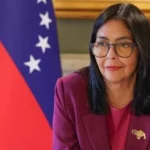After the end of the last registered strike at the Guillermo Grant Benavente and Traumatological hospitals, in the capital of the Biobío Region, the director of the Concepción Health Service, Víctor Valenzuela, referred to the more than a thousand surgeries suspended due to the mobilizations. In this sense, along with assessing the agreement reached, he stressed that the priority is to move forward with the recovery plan for surgical interventions, with a special focus on cancer patients on the waiting list.
Valenzuela specified that this recovery plan has been carried out since last year, as a result of the strikes they had in 2022. Therefore, the first strategy, he said, is to work extended hours, from five in the afternoon onwards, hiring the services of doctors, nurses and TENS, to care for patients.
You may also like:
The head of the service and in charge of the articulation, management and development of the care network, added that the second strategy is to serve Saturdays and Sundays, plus —the third strategy— the extra system route, in which beds are bought and carried out carry out interventions with hospital staff or with the full service, to private clinics.
“We want to ensure that we are providing the service, recovering each of those surgical care that could not be performed due to the strike,” Víctor Valenzuela declared, along with stating that the priority is cancer patients.
“Between this and last year, there were about 1,100 operations suspended and 40% are from the oncology field and are the priority to reschedule and reschedule,” he declared.
Let us remember that the stoppage of activities that had been taking place since January 3 at the Guillermo Grant Benavente and Traumatológico de Concepción hospitals was ended, motivated by the demand for a mobilization service for workers and that had been granted at the beginning of the pandemic –a cost that, in two years, totaled 3,200 million pesos–, when there were still no vaccines and the country was under a health alert. The agreement with the Minsal was to “explore ways”, such as private financing, to take charge of the demand, since there is no legal norm that allows health services to finance this mobilization.


















